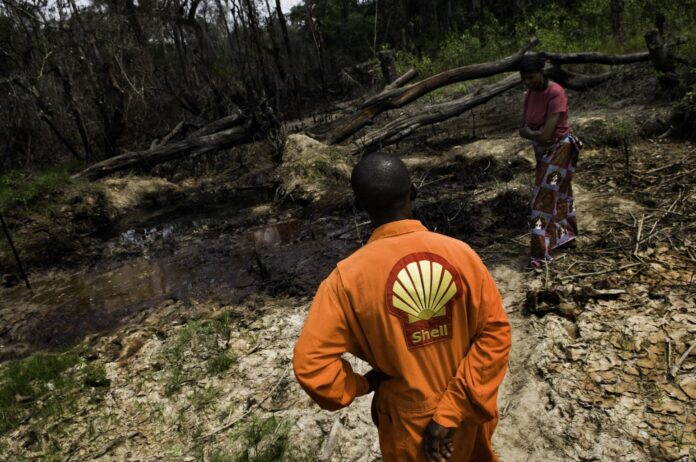A new report by the Socio-Economic Rights and Accountability Project (SERAP) has detailed how oil a. nd gas companies, government and its regulators further the systemic environmental degradation in the Niger Delta region.
Speaking at the presentation of a report by the group titled, ‘We Are All Vulnerable Here: How Lack of Transparency and Accountability is Fueling Human Rights Violations in the Niger Delta,’ Dr Bunmi Afinowi, said the extensive social, economic, and environmental degeneration in the region has largely affected the lifestyles and wellbeing of the people.
The report also noted that there is continued disregard and abuse of the human rights of the people of the region.“The research also highlights loopholes in the monitoring of the activities of oil and gas companies by the relevant agencies.
“The relevant monitoring agencies have not effectively carried out their duties and functions and this has led to a continued disregard for the rights of the people and the need to protect the environment. In the same vein, the empirical study particularly shows that corruption is a major factor in the continued degradation in the Niger Delta region.
“The government does not have an effective governance and feedback framework to foster interactions between regulators, companies, and communities. This implies a lack of transparency and accountability from the companies and the government to the people.
“The oil and gas companies receive minimal government monitoring in the conduct of their activities; more troubling is the prevalence of oil theft and illegal mining, and refining of crude oil. Such illegal activities make the Region crime prone and increase the vulnerability of the inhabitants of the communities, as their lives, land, resources and lives are continually under threat.
“The research also shows that the communities are continually exposed to food insecurity and health risks. Most of their communal lands, land and water resources have been lost or continually threatened by degradation and pollution. This implies an increased pressure on available land and reduced yield which could eventually lead to a scarcity of food and other biodiversity services within the Region.
“Concerning community development projects, the research highlights several lapses in community engagement, needs assessment, and collaboration in determining projects to be undertaken within the communities.
“A lot of information about the oil and gas companies, their activities, environmental audits and other relevant information are not available to the public. Such information is often shrouded in secrecy and where made available, is limited, unclear and provides little or no actual information.
“Public participation does not follow a clear-cut structure, it seems to be applied according to the whims of the key players in each instance. The implication is that communities have no say in the tracking and monitoring of CDPs.
“Marginalisation of women, the aged, the youths and other vulnerable members of the communities, such as persons with disabilities is rife. This marginalisation also has far-reaching implications for the protection of the socio-economic rights of the Inhabitants of the communities.”
The report asked the Independent Corrupt Practices and Other Related Offences Commission (ICPC) and Economic and Financial Crimes Commission (EFCC) to promptly, thoroughly and transparently investigate allegations of corruption in the spending of public funds meant to mitigate the socio-economic and gendered impacts of environmental pollution in oil-producing communities.
It stated that the outcome of any such investigation should be widely published and anyone suspected to be responsible for corruption should be brought to justice. “Ensure the recovery of any stolen public funds from public officials and companies who illegally benefited from the public funds meant to respond to the socio-economic and gendered impacts of environmental pollution in producing communities.”
















